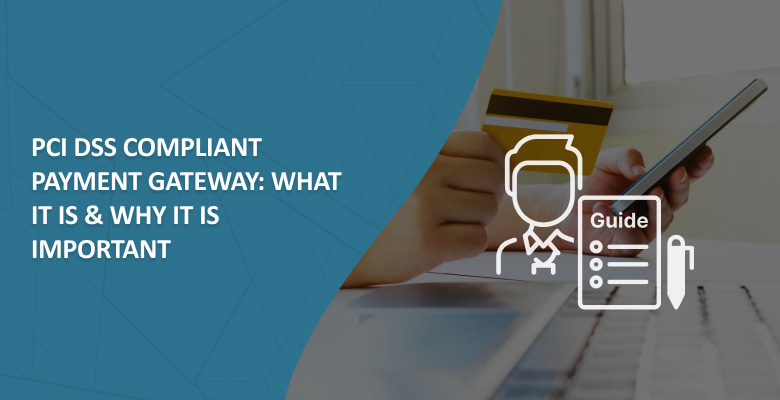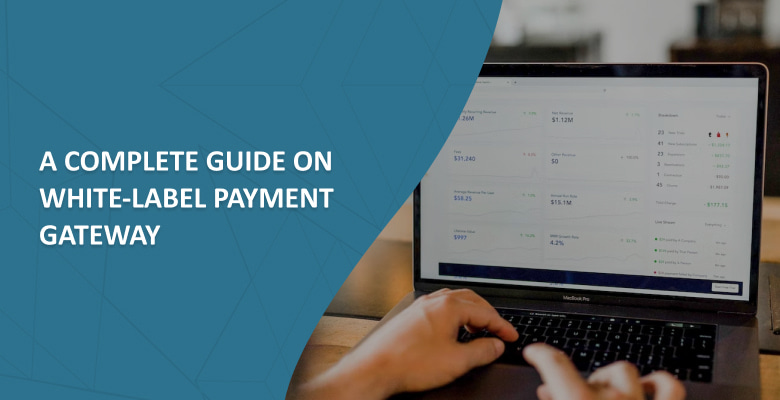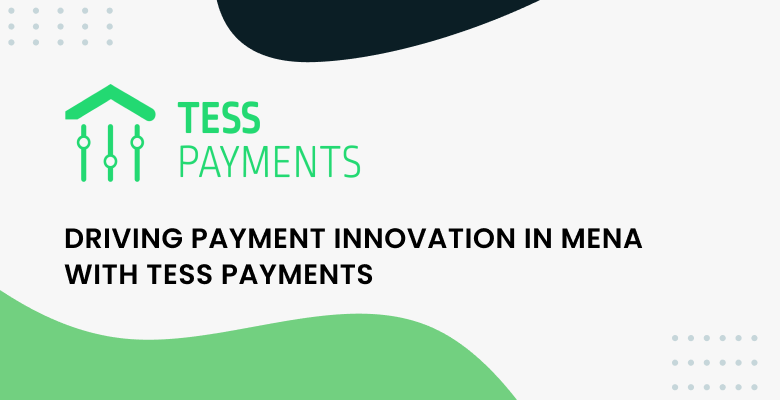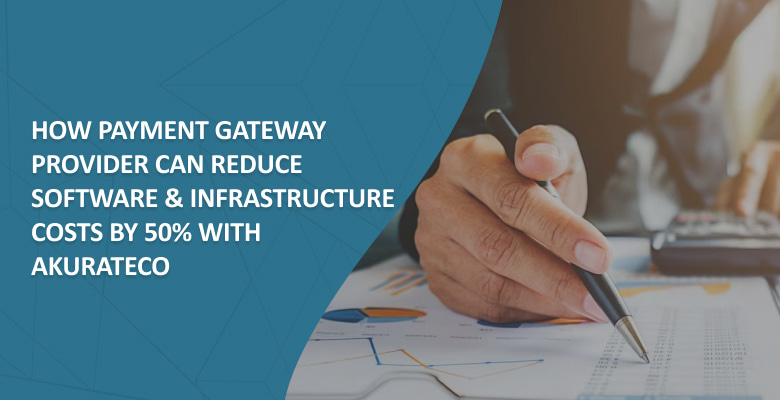
- What is a PCI Compliant Payment Gateway?
- Understanding PCI DSS Requirements
- The Importance of PCI DSS Compliance
- How a PCI DSS Compliant Payment Gateway Works
- Benefits of Using a PCI DSS Compliant Payment Gateway
- PCI DSS Compliance Levels
- Who needs PCI DSS compliant payment gateway?
- How to achieve PCI DSS compliance cost-effectively
- Maintaining PCI DSS compliance with Akurateco
- Conclusion
- FAQs
The world of digital payments is a strictly regulated area that operates within a highly regulated framework for data security – PCI DSS – that FinTech software providers, merchants, payment processors, and basically, every party that works with sensitive data must comply with to protect customers from fraud. This is precisely where PCI compliant payment gateways become indispensable for secure transaction processing.
If you’re seeking a secure way to accept payments on your website, your primary consideration should be a PCI DSS compliant payment gateway. In this article, we’ll uncover what is a PCI payment gateway, why it is crucial, and who needs it in the first place.
What is a PCI Compliant Payment Gateway?
To understand the concept of a PCI DSS compliant payment gateway, let’s break it down into two parties. First, let’s examine what is a payment gateway.
Payment gateway is a software that enables transaction processing by facilitating electronic transactions and exchanging payment data between customers, PCI compliant payment processors, card networks, issuing banks, acquiring banks, and ultimately a merchants, ensuring the secure and efficient transfer of funds. Simply put, it is a technical layer that allows merchants to accept payments from customers. In other words, it’s essential to utilize PCI compliant payment solutions for secure and smooth payment transactions.
PCI DSS compliance, often called PCI compliance, stands for compliance with the Payment Card Industry Data Security Standard. It is a set of mandatory security standards and best practices established by the Payment Card Industry Security Standards Council (PCI SSC) to protect customers’ sensitive credit card and payment information during and after transaction processing.
Now, let’s combine these two concepts.
PCI compliant payment gateway is software or service that meets PCI DSS security requirements and standards. If a payment gateway is PCI DSS certified, it indicates it has implemented the necessary security measures to safeguard sensitive card data. Thus, choosing among available PCI compliant payment gateways ensures merchants and customers benefit from the highest level of security.
Understanding PCI DSS Requirements
To dive deeper into understanding the significance of PCI compliance for payment gateways, let’s look at a comprehensive set of requirements and security measures PCI DSS provides to organizations that handle payment card data.
PCI DSS requirements involve six main components:
Build and maintain secure networks and systems
Install and maintain a firewall configuration to protect cardholder data and prevent unauthorized access and breaches.
Protect cardholder data
Encrypt cardholder data when stored or transmitted to ensure its confidentiality and security.
Maintain a vulnerability management program
Use and regularly update antivirus software or programs.
Implement strong access control measures
Limit access to cardholder data to minimize the risk of unauthorized access and data exposure.
Regularly monitor and test networks
Track and monitor all access to network resources and cardholder data to promptly identify suspicious activity.
Validate PCI DSS compliance annually
Renew PCI DSS compliance annually to ensure that your organization continues to meet its security standards and requirements.
Achieving PCI compliance for payment gateway operations means adhering to a strict set of security protocols that cover every aspect of cardholder data handling.
The Importance of PCI DSS Compliance
PCI DSS compliance is of paramount importance for all the parties involved in handling customers’ sensitive card data. Let us take a closer look at why it is essential.
Legal obligations
PCI DSS compliance is not an option you can choose whether or not to have. It is mandated by the law and regulations for sensitive card data processing. That is why you may face severe penalties, fines, and legal consequences if you fail to comply with it. Noncompliance penalties can range from a few thousand dollars to several hundred thousand dollars or more. PCI DSS compliance is what helps organizations meet their legal obligations and prevent costly penalties.
Data security
Another threat merchants are concerned about is fraudulent activity. If your software provider is not certified with PCI DSS, it will not likely keep cardholders’ data secure on your website. The consequences can be severe, ranging from financial loss to irreparable reputation damage. The essence of PCI DSS certification is precisely protecting sensitive cardholder data. Compliance ensures robust security measures are in place to safeguard their customers’ sensitive data from unauthorized access, breaches, and theft.
Financial protection
As PCI DSS dramatically reduces the likelihood of data breaches occurring in the first place, it helps businesses avoid the financial repercussions, saving them hundreds of thousands of dollars on fines, legal fees, and expenses related to security enhancements, policy improvements, and compliance efforts to prevent future incidents.
Reputational management
As a business’s reputation stands among its most precious assets, it becomes imperative for enterprises to shield both themselves and their customers from fraud. Failure to do so can result in permanent customer trust loss and irreparable damage to the business’s long-term reputation. This is precisely where PCI DSS steps in, preventing fraud from occurring and damaging your reputation. Utilizing PCI compliant payment solutions significantly reduces the risk of fraudulent activity, protecting your company’s reputation.
Implementing PCI compliant payment solutions not only limits liability but also ensures a proactive approach to payment security.
Customer trust
Whenever a customer wants to make a purchase on a website, they first evaluate how safe it is to enter their payment information. Compliance with PCI DSS makes businesses trustworthy to customers, encouraging them to purchase at your website, knowing their credit card details are secure and protected. If you are wondering how to start a payment processing company, ensuring a high level of security and compliance will be one of the foundational steps to gaining customer trust and establishing a successful business.
Gaining PCI compliance using a payment gateway communicates to users that their payment information is in safe hands.
How a PCI DSS Compliant Payment Gateway Works
A PCI DSS compliant payment gateway facilitates secure online transactions by encrypting and transmitting a customer’s card data, obtaining authorization from their issuing bank, and processing their payment securely.
For a deeper understanding of how payment gateways operate, read the article below:
Throughout the process, the PCI DSS compliant payment gateway maintains a high level of security, ensuring that customer sensitive data is protected at all transaction processing stages. It may also offer additional technologies to protect customers from fraud, such as tokenization (replacing actual card data with randomly generated tokens) and fraud prevention to enhance security further.
To maintain PCI DSS compliance, payment gateways undergo annual audits and assessments to verify their adherence to security standards.
Benefits of Using a PCI DSS Compliant Payment Gateway
There are multiple benefits that a PCI DSS compliant payment gateway offers to online merchants and businesses of all kinds. Among them are:
Legal and regulatory compliance
Payment gateways that adhere to PCI DSS standards help businesses meet legal and regulatory data security requirements. When you leverage PCI compliance using payment gateway, it guarantees that the company operates according to applicable laws and regulations, avoiding any legal repercussions associated with non-compliance.
High-end system security
PCI payment gateway provides advanced technologies for securely handling and storing sensitive card data, ensuring strict adherence to requirements and regulations designed to safeguard customers from fraudulent activities.
Global expansion
PCI DSS standards and requirements are internationally recognized and accepted in many countries around the world. That is why merchants leveraging compliant software can accept transactions worldwide and confidently expand their customer base, knowing that they meet established security standards.
Streamlined transaction processing
PCI compliant payment gateways deliver high efficiency levels. They are designed to process transactions quickly and securely, minimizing delays in payment authorization and processing to ensure a seamless and fast checkout experience.
Pleasant customer experience
When customers make a purchase on a website that utilizes a PCI DSS compliant payment gateway, they experience a hassle-free and secure transaction process that shields them from fraudulent activities. This positive experience fosters loyalty to the merchant, encouraging future purchases. If you are considering offering tailored services or integrating your own platform, you might want to explore how to create a payment gateway to ensure your business provides secure and compliant payment solutions.
PCI DSS Compliance Levels
As organizations that process payment card transactions come in different sizes and operate with varying levels of complexity, there are four different levels of PCI DSS certification. These levels are based on the number of annually processed transactions.
Level 1: over 6M transactions per year
Level 2: between 1M and 6M transactions per year
Level 3: between 20K and 1M transactions per year
Level 4: less than 20K transactions per year
Who needs PCI DSS compliant payment gateway?
Now that you’ve gained a solid understanding of the basics of PCI compliant payment gateways, let’s explore who needs them for their business operations.
First and foremost, a PCI payment gateway is crucial for merchants that process payment card transactions, including e-commerce websites, subscription services, retailers, online marketplaces, and basically any business that handles sensitive card data to secure it during transaction processing.
Also, it is mandatory for Payment Service Providers (PSPs) who offer their services to merchants in order to protect the data they handle on their behalf.
To learn more about how to integrate a PCI compliant payment gateway into your website or application, read the article below:
Payment Gateway Integration: A Step-by-Step Guide for Business Owners
How to achieve PCI DSS compliance cost-effectively
Here’s how payment service providers and merchants can achieve PCI DSS compliance without spending a fortune:
Achieving PCI DSS compliance for payment service providers
To achieve PCI DSS compliance, it’s not essential to develop and certify your own software. If you’re looking to start your own payment business or modernize an outdated system, it’s worth considering white-label payment gateways offered by cutting-edge payment providers like Akurateco. A white-label payment gateway is a ready-made payment solution. It is already PCI DSS certified and can be launched under your brand within a few business weeks. It saves PSPs time and resources by eliminating the need to develop, maintain, and certify software.
Achieving PCI DSS compliance for merchants
Relying on just one PSP can be risky for merchants, as any issues or delays could harm their profitability. For those handling large transaction volumes, connecting with multiple PCI DSS-compliant PSPs is a smart move. However, managing each PSP separately can be complicated, especially with multiple administration panels to deal with.
The most efficient way to deal with this issue is to use a payment orchestration platform, which already integrates various PCI DSS-compliant banks and PSPs. This allows merchants to manage all their payment services from one centralized platform, simplifying operations.
Alternatively, merchants operating on a global scale can consider building their own PSP (in case they have sufficient time and budget) or opting for a white-label payment gateway. This route can expand their revenue streams, help reduce transaction fees, and provide greater control over the payment process.
Maintaining PCI DSS compliance with Akurateco
Akurateco is a PCI DSS Level 1 certified white-label payment software provider that offers advanced technologies and over 300 payment integrations to merchants and PSPs worldwide.
Let’s take a look at PCI compliant payment gateway integration options that are available to our clients:
Clients with a non-PCI DSS compliant payment page
For merchants without PCI DSS-compliant checkout pages, we offer Hosted Payment Page (HPP) integration coupled with a Software Development Kit (SDK) that enables complete customization according to the client’s logo, color scheme, and other branding preferences.
Also, they can integrate a payment gateway via Server-to-Server (S2S) APM that redirects the user to the Akurateco server for payment. Moreover, if merchants work on different platforms such as WooCommerce, PrestaShop, etc., they can use a variety of plugins for payment gateway integration that Akurateco provides.
If a merchant prefers mobile-first e-commerce model they first of all need a powerful backend as a service (MBaaS) and then reliable mobile SDK to perform transactions.
Clients with PCI DSS compliant payment page
If a merchant’s checkout page is PCI DSS compliant, they have the flexibility to select from the integration options listed below:
- HPP
- API rest/API soap (S2S)
- Mobile SDK
- CMS plugins
For businesses interested in obtaining PCI DSS compliance for your business, we offer assistance in achieving Level 3 and Level 4 compliance for merchants and Level 2 compliance for PSPs.
As Akurateco collaborates with leading Qualified Security Assessors (QSAs), our experts can guide you throughout the compliance process step by step, from preparing documents to achieving PCI DSS certification. We’ll also provide the documentation from our side, including details about our system’s architecture and other necessary documents.
Conclusion
Overall, a PCI DSS compliant payment gateway is a crucial component for safeguarding payment data in today’s digital landscape, offering businesses numerous benefits, from enhanced security to streamlined transaction processing. At Akurateco, we provide industry-leading white-label payment solutions, ensuring the highest data security standards.
FAQs
What does PCI compliant mean?
PCI compliance refers to adhering to the Payment Card Industry Data Security Standard (PCI DSS), a set of security guidelines designed to protect cardholder data during transactions. PCI compliance ensures that businesses handling payment card information implement robust security measures to safeguard sensitive data from breaches or misuse.
What is PCI PCI-compliant payment gateway?
A PCI-compliant payment gateway is a payment processing system that adheres to the Payment Card Industry Data Security Standard (PCI DSS). This compliance ensures that the gateway meets the necessary security standards for securely handling, processing, and transmitting payment card information.
Do I need to be PCI compliant if I use a payment gateway?
Yes, you still need to ensure PCI compliance even if you use a payment gateway. While the payment gateway itself is PCI compliant, meaning it follows the required security standards, the responsibility for compliance can extend to the business that processes payments.
How do I make sure l am PCI compliant?
To ensure PCI compliance, familiarize yourself with the PCI DSS and assess how your business handles payment card data. Make sure your payment gateway is PCI-compliant and complete a Self-Assessment Questionnaire (SAQ) or formal audit if needed.
Implement security measures like data encryption, access control, and network protection, and regularly monitor your systems for vulnerabilities. Keep documentation of your compliance efforts for audits and ongoing security management.






